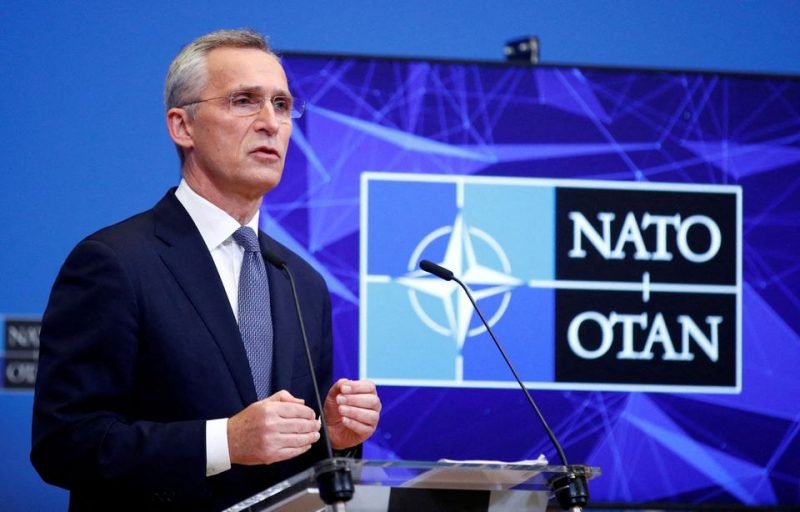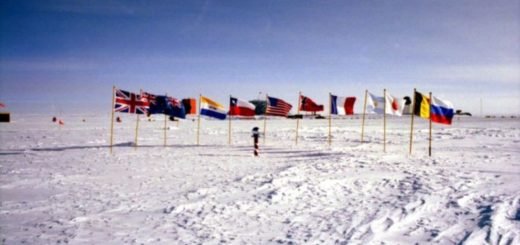Lipstick effect in Russia and remembering Austin

Big brother of Eastern Europe
The Post-2008 global financial crisis, the Russian economy was expanding by only about 2% annually in the three years leading up to the COVID-19 pandemic Even with a downfall in the economy, Russia chose the ‘luxury to invade Ukraine’ which depicts the lipstick effect as the country’s 2020 GDP had shown a drastic contraction in numbers in various sectors like- mining, manufacturing, extraction, transportation, etc.
In a calculated move, Russia factored in the lowering of U.S. hegemony post its exit in Afghanistan as well as diverted the position of U.K. and France post-Brexit and upcoming elections respectively. When the world’s biggest players are distracted and fragmented at such a crucial point, there could have been no better time than this for Russia to give effect to an invasion. In another classic move, Russia intends to use the Nord Stream 2 undersea gas pipeline as a geopolitical weapon that bypasses Ukraine, diminishing the importance of Ukraine over Russia in the global economy.
Sanctions are of no relevance to Russia, this is quite evident from its behaviour after the 2014 annexation of Crimea, a peninsula located along the coast of the Black Sea in Eastern Europe. Austin’s emphasis on the imposition of Sanctions, with a perspective that International Law is no law as it does not emanate from a law giving authority and has no Sanction behind it, seems the most convincing statement in such a perturbed scenario.
En Route
Vladimir Putin, the President of Russia might have anticipated the economic repercussions as the country already had been in a position of being imposed by international sanctions in respect of- by not holding the US Treasuries and moving money away from the US$ and EUR to give a preference to gold and Renminbi; as well as moving away holdings which fall in Western jurisdictions and supposedly can be frozen. Further, there is also an international relations theory called the Stability-Instability paradox with regard to nuclear weapons and mutually assured destruction. According to this paradox, when two nuclear states are in possession of nuclear weapons then the probability of minor or indirect conflicts are higher than that of direct war because countries generally want to defer/ avoid nuclear wars. For example- The Cold Wars where the US and Soviet Union engaged in minor conflicts with countries like the Middle East, Nicaragua, Afghanistan, etc. On the same line of theory, Putin might have thought that there are no chances for someone to indulge with them at the world platform and thereby, the troops and military forces can be easily escalated to disrupt the political and economic situations of a third-world country.

A look from the green room
Though joining North Atlantic Treaty Organization (NATO) could be seen as one of the main reasons for the Ukraine crisis but:
The European Union (EU) is highly dependent upon Russia for natural gas reserves as the largest portion, approximately 41% of the total share is supplied by them
After Russia, Ukraine has plenty of resources with the second-biggest gas reserve in Europe. This might unsettle the geopolitical stance with regard to the European energy supply as there are tense Ukrainian-Russian relations, disturbed gas transportation routes and lingering security concerns. The clash might disturb the economic course of Europe as both the major energy supply countries are in close and immediate vicinity to each other. However, if we look at the unsettled international situation of many developed countries along with the European Union then, conquering Ukraine with force and execution of war makes Russia a dominant power and helps to establish the market monopoly with regard to the gas reserves.
Another reason is the embarking and enhancing presence of Russia in the Black Sea. Russia has the longest coastline in the world i.e., around 40000 km (around 5 times that of India) but here, the ocean is frozen for more than half a year hence, barring the use of ports and consequently, resulting in negligible maritime trade. But, on the other hand, Ukraine also has a long coastline along the Black Sea which connects to the Mediterranean Sea. It is pertinent to note that approximately one-third of the global trade progresses through it every year. Sevastopol Port, in Crimea, is blessed with a significant position as it falls between the Black Sea and the Sea of Azov which is already in control of Russia supplementing to a humongous advantage in maritime trade. Ukraine claims that the Black Sea is free for all shipping and the UN Convention on the Law of the Sea allows the right to enjoy ‘innocent passage’ within another state’s territorial sea unless it is prejudicial to the peace, good order or security of the coastal state. Based on these contentions, Ukraine still alleges that it has ‘legal claims’ over the Sea of Azov but, since it doesn’t have any maritime force it is unable to enforce such claims. Having said this, the land warfare of Russia with Ukraine might distract or narrow down such claims over the water so that everyone remains unaware of the actual happenings and consequently get distracted.

Cutting loose ends and odds in favour
Coincidently or not it can be said that it is the right time for Russia to play its move. One of the leading factors can be explained on the basis of Nuclear paradox theory since Russia intended to acquire and get control over the boundary lands to exhibit the most of their power and valour. In addition to this, to save the interest of the EU, it is also considered important to model the European gas pipeline network using cooperative game theory because the closure of the Ukrainian transit route and introduction of Nord Stream 2 becomes a credible threat as the latter benefits Russia and Germany while simultaneously harming Ukraine and Eastern Europe. This pipeline network has been opposed by Ukraine and Poland though majorly supported by Germany and Russia because it shall remove the transit and operating cost thereby making it an inevitable part of this war. Apart from the continent’s socio-political status, there are several reasons why even the global world is not actively participating and making a contribution in the plight of the Ukraine-Russia war or are favouring Russia to bring war.
- The USA by now has not shown any firm leadership with respect to handling any “International Issue”. Ancillary to this, ‘direct public announcement’ by the POTUS for not providing ‘military aid’ to Ukraine which definitely gives more power and maximum control to Russia.
- The UK is dealing with its own issues related to the Brexit deal where the referendum which has been signed to include or not to include itself in the European Union has created a sense of disparity which shall have political and economic consequences. The withdrawal of the UK from Afghanistan and its Aukus security partnership in the Indo-Pacific had been a chaos. However, the Ukraine crisis might be a platform for showcasing the diplomatic network which exists for the UK outside the EU bloc.
- France is due to have their elections in the upcoming months and therefore, their active participation in averting the war like situation in Ukraine might be the best possible thing for Emmanuel Macron as the current government doesn’t want to plunge into the matter because it might have consequences against them. So, being a safe player they can choose to be a silent spectator.
- India’s dependency on Russia for arms imports has been estimated to linger around 49.4% between 2016 to 2020 which is huge when compared with Ukraine which is 0.5%. Even then, India’s export to Russia is far more when compared with Russia and hence, the trade in India is shielded to some extent from being affected by these trade disruptions.
- China is most likely to support Russia by providing economic relief in this time of crisis as they had been against the imposition of sanctions by the US on Russia.
Remembering Austin
It’s not that Russia has for the first time violated any international law or treaty or convention. In Georgia v Russia, the Grand Chamber of the European Court of Human Rights held that Russia had violated several provisions including Article 38 of the 1950 European Convention for the Protection of Human Rights and Fundamental Freedoms (Convention or ECHR). The case was concerned with Russia’s collective expulsion of a large number of Georgian nationals between October 2006 and January 2007. Another document that attracts our attention with regard to Russia’s intervention in Ukraine is the violation of the Budapest Memorandum, with the annexation of Crimea in 2014. In the meetings of the Budapest summit of the Conference on Security and Cooperation in Europe (CSCE), the UK, the US and Russia had extended security assurances to Belarus, Kazakhstan and Ukraine in return for acceding to the Treaty on the Non-proliferation of Nuclear Weapons (NPT) as non-nuclear-weapon states. Though the Budapest Memorandum was not a treaty, it restated a legally binding UN Charter commitment to respect Ukraine’s sovereignty, independence, and political integrity; to refrain from using threat or force or any form of weapon except in case of self-defence in accordance with the principles of the CSCE act.

Image source: Getty
Apart from Russia, there have been other countries that have violated international law at some point or the other. Few of instances where international law has proven itself to be a chunk of garbage despite the Sanctions being in place.
- China has brought threat to space security repeatedly by taking an irresponsible stand with regard to space debris and ASAT (anti-satellite) tests. The remains of Chinese rockets fall in the ocean bodies at different places on Earth causing land and water pollution time and again. Despite the presence of multiple organisations like- Australian Space Agency, Space Surveillance Radar System, etc there has not been a regularised method to minimise the production of such matters in the space neighbourhood thereby, making the problem worse.
- The UN’s failure to impose sanctions on Taliban leaders in Afghanistan has been strongly criticised by India as it led to perpetration of violence and destruction in the war-torn country. This led to the establishment of terrorist and militant groups in the country disturbing the harmony and peace, stealing of resources and funding ways to illegal activities.
- The entry of China’s reconnaissance plane in Taiwan’s airspace escalated tension between the two countries. Inreturn, Taiwan responded by sending in its military fighter jets and issuing radio warnings by mobilising air defense assets. China didn’t follow the standard protocol before entering the air space of Taiwan thereby, affecting international law.
Hence, despite the Sanctions being in place, there are intentional deliberations and disobedience from the international standards and protocols which are binding in nature. As rightly said by Austin, “Law is the command of Sovereign backed by Sanction” meaning thereby that ‘Disobedience (of commands) is likely to be followed by the execution of the threat not only on the first promulgation of the order but continuously until the order is withdrawn or cancelled.’ It is essential for the peaceful coexistence that there are Sanctions that obligates and deters dominating powers from doing something contrary to International practices.


















